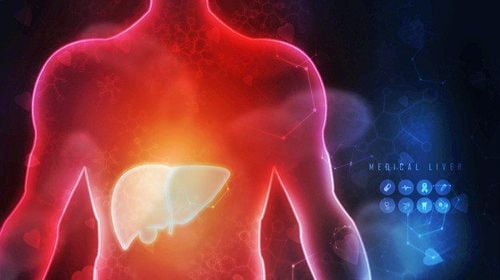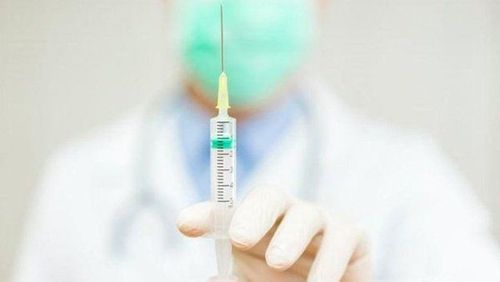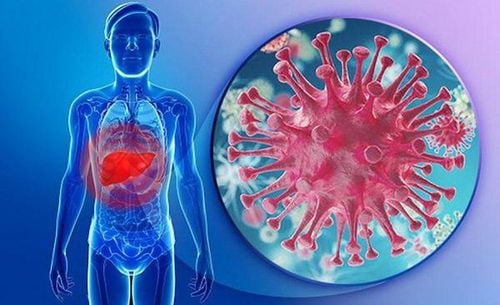This is an automatically translated article.
Acute liver failure due to many different causes can lead to dangerous complications such as sepsis, urinary tract infections, especially multi-organ failure with a high mortality rate of up to 90%. Plasma exchange therapy in acute liver failure is an effective treatment method often prescribed by doctors.
1. What is acute liver failure?
The condition of the liver being massively damaged by many different causes is called acute liver failure, leading to complications such as coagulation disorders, hepatic encephalopathy, multi-organ failure in the patient's body before the previous functions. Their liver function is normal. The mortality rate of acute liver failure is very high up to 90% if not treated promptly.
Acute liver failure is classified in many different ways such as:
According to Luke and Mallory, acute liver failure is divided into three stages: prodromal, intermediate and terminal. Clinically classified acute liver failure is divided into fulminant liver failure (7 days), acute liver failure (8-28 days), and subacute liver failure (5-12 weeks). Acute liver failure is also divided according to hepatic encephalopathy into 4 levels, this is a division with many benefits to help doctors predict the severity of the disease, making it easier for doctors to monitor and treat patients.
2.Causes of acute liver failure

Viêm gan B là nguyên nhân chủ yếu gây suy gan cấp
There are many causes of acute liver failure, these causes include:
Microbial causes: The disease is caused by hepatitis viruses A, B, C, E, in Vietnam the cause is mainly caused by hepatitis viruses. hepatitis B . Some other viruses such as Cytomegalovirus, Herpes, Epstein Barr, chickenpox can also cause acute liver failure. Patients with severe infections or septic shock have a liver damage rate of 20-25%. Parasites such as malaria, liver flukes, and worms are also factors that can cause acute liver failure. Due to drug poisoning: Poisoning by paracetamol overdose or using the right dose, but patients with a history of alcoholism or use with anticonvulsants also cause acute liver failure. Some other drugs, if used incorrectly as directed by the doctor or pharmacist, lead to poisoning and cause acute liver failure such as Isoniazid, Rifampicin, Non-Steroid Anti-Inflammatory Drugs, Sulphonamides, Phenytoin, Tetracycline, Allopurinol, Ketoconazole , MAO..., poisoning with traditional medicines, especially drug preservatives. Mushroom poisoning : Typically Amanita phalloides mushrooms Other causes such as acute fatty liver syndrome in pregnant women, patients with large vascular occlusion in the liver, Reye's syndrome. ..
3.Signs of acute liver failure

Vàng da có thể là dấu hiệu suy gan cấp
Acute liver failure happens quickly and complications lead to high death, so patients need to pay attention to the initial symptoms so that they can be quickly hospitalized for treatment. Clinical signs of acute liver failure are as follows:
Patient fatigue, nausea, loss of appetite Yellowing of the skin and mucous membranes rapidly, urine is darker than normal Symptoms of coagulation disorders such as bleeding bleeding under the skin, mucous membranes, gastrointestinal bleeding, brain hemorrhage... Hepatobiliary syndrome and other manifestations depending on the stage:
Grade I: Mood swings, loss of concentration, sleep disturbances . Grade II: The patient has lethargy, abnormal behavior, disorientation, and is responsive to other people's words. Grade III: Somnolence, unresponsiveness to speech, hyperreflexia. Grade IV: The patient falls into a coma, shows brain loss, may still respond to painful stimuli. Some complications may occur with acute liver failure such as acute kidney failure, infections such as pneumonia, urinary tract infections, sepsis... especially the patient may die from multi-organ failure.
To accurately diagnose the disease, the patient will be assigned to do biochemical and hematological tests to evaluate the patient's liver failure. After that, the patient will be tested to find the cause of the disease and perform imaging tests such as abdominal ultrasound, CT scan...
4. How to treat acute liver failure?

Suy gan cấp bằng liệu pháp lọc máu thay huyết tương
4.1 Principles of treatment of acute liver failure Currently there is no specific treatment for acute liver failure, doctors usually support liver or organ dysfunction, treat complications of the disease in while waiting for liver cells to recover or waiting for liver transplant surgery.
The doctor will perform basic resuscitation measures for the patient such as circulatory resuscitation, treatment against cerebral edema, prevention of gastrointestinal bleeding, treatment of blood clotting disorders...
4.2 Treatment Acute liver failure with plasma exchange therapy Currently, treatment of acute liver failure with plasma exchange therapy is widely used because of its effectiveness in the treatment of this disease. Plasma exchange in acute liver failure helps to remove toxins produced in the metabolism supporting the liver while waiting for liver recovery. This plasma exchange dialysis cannot be performed if the patient's mean blood pressure is less than 55 mmHg, the patient has a progressive disorder, or has severe coagulopathy (DIC).
Time for dialysis to change plasma from 8h-24h and do it continuously for 3 days. From day 4 onwards, only conduct MARS filtration when the Bilirubin level increases beyond 1.5mg/dl/24h or again exceeds the threshold of 15mg/dl. In case the Bilirubin level rises again above 3mg/dl during Within 48 hours, MARS must be redone.
During plasma exchange dialysis, the physician or nurse must monitor the established specifications and actual parameters of blood flow rate, albumin flow rate, MARS prisma pressure and post-membrane pressure. Normally, these parameters are displayed on the screen and the machine will alarm when there are abnormal signs.
Although plasma exchange therapy in acute liver failure is very effective in the treatment of this disease, however, some complications may occur during plasma exchange dialysis as follows:
Membrane occlusion, membrane rupture: For many different reasons, the doctor must stop the dialysis process to replace the filter or another filter. Patients with hypotension: Doctors need to urgently rehydrate and combine vasopressors to maintain blood pressure if necessary. If the patient's blood pressure does not increase, the doctor must stop the dialysis process. Bleeding: Often due to a clotting disorder, dialysis may need to be stopped if the condition is too severe. Infection: Stop dialysis and treat the infection. Currently, Vinmec International General Hospital has Hepatobiliary Screening packages, which help detect Hepatitis Virus at an early stage even when there are no symptoms. In addition, the comprehensive hepatobiliary screening package helps customers:
Evaluate the liver's ability to work through liver enzyme tests; Evaluation of bile function; vascular nutrition; Early screening for liver cancer; Perform tests such as Total blood cell analysis, blood clotting ability, screening for hepatitis B, C Assessment of liver and biliary status through ultrasound images and diseases that are at risk of affecting liver disease / liver disease. more severe liver disease In-depth analysis of parameters to evaluate hepatobiliary function through laboratory and subclinical tests; the risk of affecting the liver and early screening for hepatobiliary cancer
Please dial HOTLINE for more information or register for an appointment HERE. Download MyVinmec app to make appointments faster and to manage your bookings easily.













